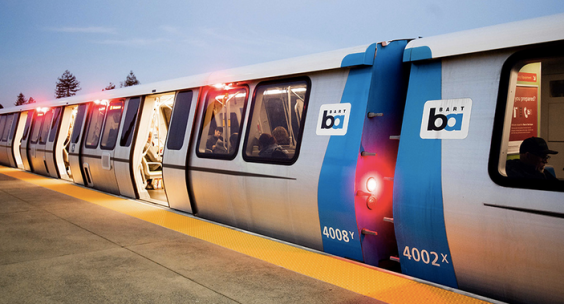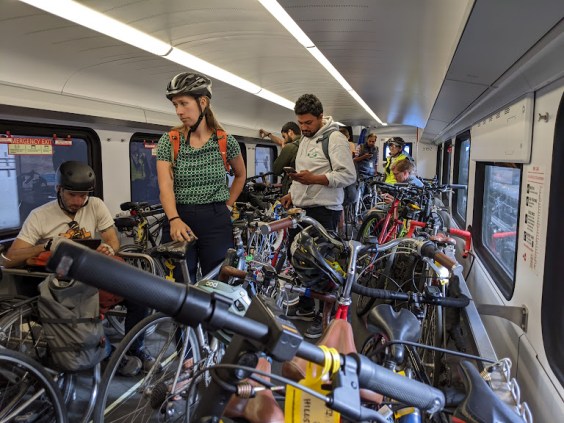
Chouteau Avenue in St. Louis is finally getting a bike lane that's been promised since 2009. But the finished product falls far short of what it could be, writes Alex Ihnen at NextSTL. The flaws in the Chouteau redesign say a lot about the city's haphazard approach to bike planning, Ihnen says:
It appears to be city policy to paint bike lanes as part of larger resurfacing efforts. This is smart in one way, but also means that we may wait years before lanes are painted. And if a repaving project is delayed, so is the bike lane. Once paved and painted, there’s no established timeline for repainting.
The city continues to paint bike lanes where it's cheap and convenient, and without significant public feedback. And the lanes continue to fill with debris and be practically unusable.
And so the Chouteau bike lanes appeared this month. They represent another good addition to cycling infrastructure in the city, and another missed opportunity. When asked for details of the bike lanes via Twitter before painting, MoDOT St. Louis simply replied that nothing was available to share. Neither the city, nor Trailnet, nor Great Rivers Greenway were able to provide the plan. Chouteau Avenue is also Missouri State Route 100, meaning it’s managed by the state’s DOT.
We were left to guess as to the coming configuration, and put together this image (above) of what to expect. While intersection treatment varies, and four traffic lanes persist past major intersections before being reduced to two, this is basically what was painted.
A much better solution would have been to create a two-way cycle track on the north side of Chouteau as a number of superblocks provide many fewer intersections that would be expected. And although the road diet has reduced traffic lanes, Chouteau remains an open asphalt expanse and drivers treat it as such. Traffic moves fast. On arterial roads like this, cyclists are better served by separated infrastructure.
Elsewhere on the Network today: Streets.mn rounds up the craziest comments from an article about St. Paul's plan to add parking meters downtown. And Greater Greater Washington reflects on what "Back to the Future" got right about cities in 2015.





